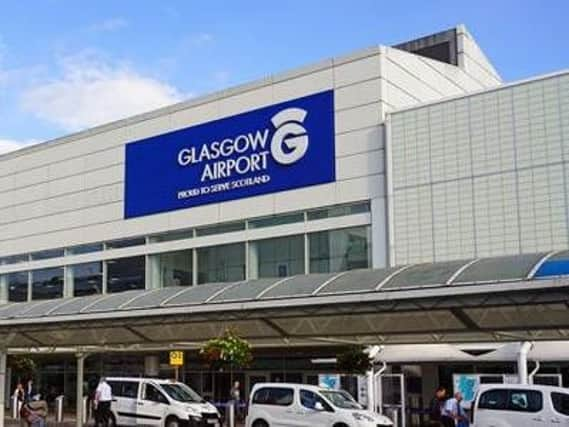EasyJet co-pilot on plane to Glasgow with 148 passengers left cockpit during anxiety attack


The co-pilot’s feeling of unease had built up after an incident the previous day on a flight to Mallorca, according to the Air Accidents Investigation Branch (AAIB).
The captain landed the plane on his own after the co-pilot became incapacitated and left the flight deck after experiencing anxiety which developed into a panic attack.
Advertisement
Hide AdAdvertisement
Hide AdSome 148 passengers and six crew were on board the Airbus A319-111 flying from Stansted on 30 September last year when the incident happened.
The commander advised air traffic control that the plane was being operated by one pilot, and together with the cabin crew managed to perform a safe single-pilot landing.
The day before, the co-pilot and commander had flown from Glasgow to Palma de Mallorca and back, and upon approaching the landing strip to the resort city’s airport, a change in wind displaced the aircraft, during which the commander took over and executed a go-around.
The co-pilot had not experienced this type of incident before, the AAIB said.
He believed it was a frightening and serious event, and it triggered self-criticism and performance pressure.
He only slept for around four hours that night, and during flights the following day from Glasgow to Stansted and back he felt increasingly nervous.
He was “over-thinking” the need for a good approach to a runway, he told investigators.
On approach to Glasgow, the commander mentioned the possibility of windshear. Investigators concluded that the captain’s mention of windshear may have caused the co-pilot’s anxiety to develop into panic.
Advertisement
Hide AdAdvertisement
Hide Ad“Eventually, his emotions and associated physical symptoms overwhelmed him,” the AAIB said.
The investigation found that the pilots failed to communicate effectively regarding the emotional issues the co-pilot was experiencing.
It noted that it was the co-pilot’s responsibility not to fly if he was unfit, but he felt well enough to report for duty at the start of his shift.
He was not aware of programmes offered by EasyJet through which he could have discussed the aborted landing anonymously.
After support from the airline and medical professionals, he was assessed as fit to return to flying.
An EasyJet spokeswoman said: “EasyJet assisted with the AAIB’s investigation which confirmed that the captain performed a safe landing with the help of the crew and air traffic control.
“The safety of those on board was not compromised at any time.
The safety and well-being of our passengers and crew is the airline’s highest priority.
Advertisement
Hide AdAdvertisement
Hide AdWe always take steps to ensure that our pilots are fully fit to operate.
“We offer support through an employee assistance programme, pilot peer support programme and we have a full occupational health provision.
“All pilots are licensed under aviation regulators and as part of this are subject to extensive regular medical assessments which include mental health assessments.
“After being fully supported by EasyJet, his aviation medical examiner and other medical professionals, the co-pilot was assessed as fit to return to flying.”
